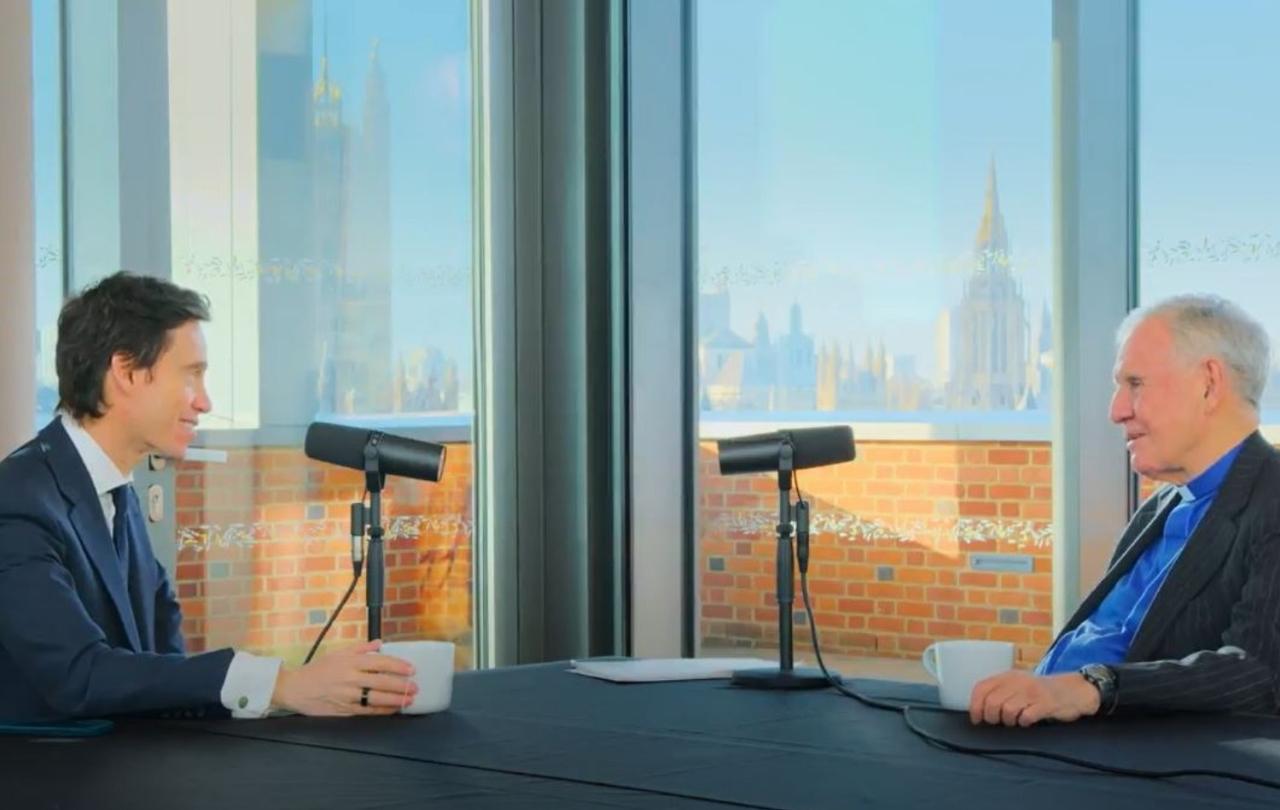When was the last time a book elicited spontaneous reverence from you? It’s something of a cliché to say that books take you on a journey, but sometimes a book comes along which simply demands to be read with ceremony.
This is the experience of the writer Donna Freitas, just one of the guests welcomed onto season 7 of the Re-enchanting podcast. In her conversation with Belle Tindell and Justin Brierley, she describes how her morning routine of coffee and a book has practically attained the status of a ritual for her. Freitas describes the deliberate preparations she made for the final chapter of Alice Winn’s In Memoriam, a historical novel exploring the relationship between two young soldiers in the trenches of the First World War as their idealised understanding of war shatters and their suppressed feelings for one another play out against a shifting backdrop of class, national identity and belonging. Freitas’ ceremonial approach to finishing her book - you’ll have to listen to the episode to hear more about this - may sound somewhat unusual at first for the respect and honour that it implies is due to a book, but this notion of textual reverence finds a distant echo in the Christian faith, where the Word, living and written, is central.
Freitas’ particular experience of faith is recounted in her book, Wishful Thinking: How I Lost My Faith and Why I Want to Find It, but listening to her description of her reading experience posed its own questions for me. At what point does habit become ritual? And how do we distinguish between them? Even as people develop individual, secular rituals to give rhythm to their lives, this does not always translate into an openness towards religious ritual. Does this mean that ritual today is understood as an individual, rather than shared, activity? Despite some evidence suggesting a revival of sorts in the Christian faith, most of the growing churches in the UK tend place more emphasis on spontaneity than ritual, but perhaps our continued desire for ritual and familiarity should give mainstream churches a reason to pause in their current approaches to church planting?
Either way, for many of us, a home-grown ritual of an enticing cup of coffee paired with the smooth, dry pages of a book first thing in the morning may simply sound like an inviting, yet sadly unattainable, prospect. Sometimes just getting everyone and everything out the door on time constitutes an epic in itself. However, since there’s no harm in fantasizing, let’s peruse the Re-enchanting back-catalogue for more reading recommendations.
Looking back over season 7 of Re-enchanting, I’m struck by how popular biography remains amongst our guests’ reading choices. Nadim Ednan-Laperouse recommends Heidi Barr’s autobiographical account of the near-death experience which led to her conversion from Orthodox Judaism, What I Saw in Heaven. Lamorna Ash, whose work explores the softening of Gen Z’s attitude towards Christianity, appropriately lends balance to her Re-enchanting moment with her recommendation of John Stuart Mill’s autobiography, which recounts his journey away from faith. The faith landscape in the UK is certainly shifting at the present time and perhaps the only way to truly understand these shifts is to read both sides of the story. We need to read about journeys away from faith as much as journeys to faith in order to understand the society in which we work and witness. A data scientist might call these eliminating biases, a literary critic might call it awareness of an unreliable narrator.
Telling the story of someone’s life is at the centre of Bear Grylls’ most recent work, The Greatest Story Ever Told, in which he retells the life of Jesus through the eyes of those around him. The emergence of the faith is told from the perspective of those coming to faith, a hint perhaps that faith has to be remade, reborn, resurrected even, afresh for each person. Read Bear Grylls’ own take on his book, written for Seen & Unseen earlier this year.
Grylls’ own work seems to have an almost essay-like quality through its short, accessible chapters and essay collections seem popular amongst our other guests as well. Lamorna Ash also recommends Pulphead by the journalist John Jeremiah Sullivan, a collection of essays spanning topics from eco-anxiety and the blues to the Tea Party and Christian rock, each giving a brief insight into the concerns and ponderings of a thousand other minds. It strikes me that such collections are the literary equivalents of hitting shuffle play, the perfect fit for those reading rituals that have to be scattered in-between other moments of activity. If you’re searching for some faith-based content for these moments, then I recommend Richard Carter’s Letters from Nazareth, a collection of meditations from the contemplative tradition written for those ‘catch your breath’ moments in the day.
Alternatively, if it’s escapism and adventure that you are after in these moments, then take up Grylls’ own suggestion, The Wager: A Tale of Shipwreck, Mutiny and Murder, by David Grann, a true story yet wildly adventurous. For those in search of more light-hearted reading, then turn to another stalwart of Re-enchanting reading lists, C.S. Lewis, whose The Silver Chair comes recommended by NYT columnist and author, Ross Douthat. As Lewis himself said, ‘a children’s story that can only be enjoyed by children is not a good children’s story in the slightest.’ Perhaps it’s time to put Lewis’ own works to the test.
Long summer days of the kind envisaged in children’s books may now be a distant memory for most of us, but with each change in season comes a new reason to pick up some reading material. I hope these autumnal days with their familiar ritual of falling leaves lead to a home-grown ritual of turning leaves for you.
Some further suggestions:






